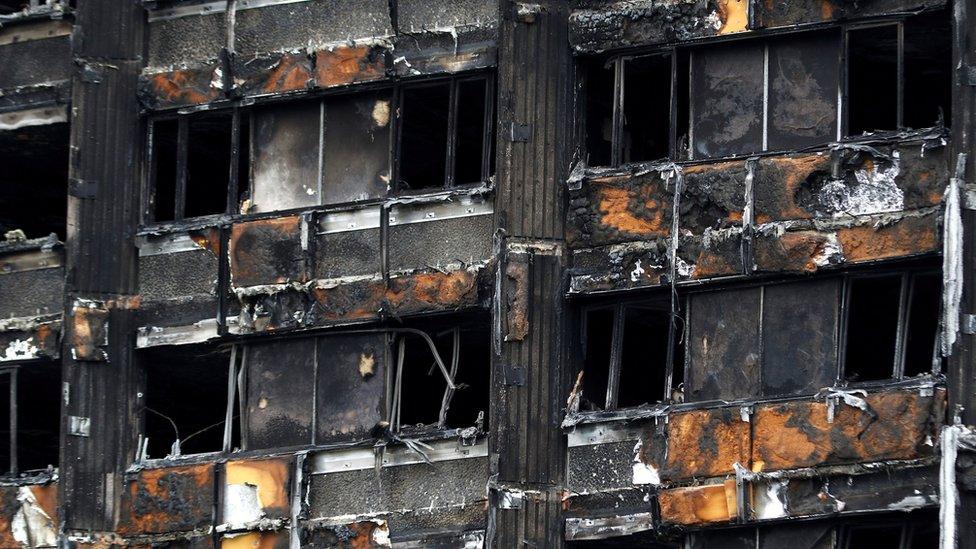Grenfell inquiry: Firefighter 'dangled from window'
- Published
Grenfell firefighter Charles Batterbee tells of blazing debris falling from the block
One of the first firefighters to enter Grenfell Tower has told how he clung to his colleague as he dangled out of a window trying to put out rising flames.
Charles Batterbee and Daniel Brown had extinguished the source of the fire in flat 16's kitchen only to notice fire on the outside of the high-rise.
Mr Batterbee said he held Mr Brown's legs as he leant out of the burnt window frame to push his hose upwards.
"I'm holding on to him for dear life," he told the Grenfell public inquiry.
"I'm digging my hips into the [kitchen] counter so we don't both go together," he added.
Meanwhile, he said burning debris was falling past the fourth floor window of the flat they were in.
"It just rained fire," he said.
At the time he thought the fire was "jumping multiple floors", the inquiry heard.
"It didn't slow, it got worse," he said.
He also told the hearing that the heat in the kitchen was something he had never experienced before in training or operationally.
As Mr Batterbee was giving evidence, the government released new figures showing it has identified almost 300 privately-owned tower blocks with unsafe Grenfell-style cladding.
Housing Secretary James Brokenshire said tests had identified a further 156 residential high-rises with aluminium composite material (ACM) cladding, which is unlikely to meet current building regulations, taking the total of privately-owned blocks with that material to 297.
In a written statement, external, he said remediation work had begun on 21 of them but the government wanted to speed it up, and has created a taskforce to oversee that work.
'It was hell'
In further evidence, Mr Batterbee told the hearing that after leaving the tower, he headed to the incident commander to debrief him and saw the full force of the fire for the first time.
"I looked up at the side of the tower and I'll never get over that shock," he said, suddenly overcome with emotion.
On the ground, it was organised chaos, he said, with debris falling and the pump revving - "it was hell".
Mr Batterbee, who joined the London Fire Brigade in 2010, earlier broke down in tears when thermal imaging footage of him going into flat 16 was first shown.
The chairman ordered that they take a break to let Mr Batterbee compose himself.
In a written statement, Mr Batterbee said there were "no words to describe how powerless" he felt when he was on the phone to a trapped resident.
He said the fire had been "life-changing and potentially career-changing in a way I can never really describe".
"I don't really think that there are any words to really capture this horrific event - this was the worst thing that I have ever experienced and witnessed."
Grenfell Tower inquiry: What questions will be answered?
His crewmate Mr Brown, who has been a firefighter in north Kensington for 26 years, has begun giving evidence.
He said he could recall a time when Grenfell Tower had an integrated alarm system and a concierge, which meant residents would evacuate when the alarm was triggered.
Asked whether he had received training to carry out a mass evacuation, he said: "We don't do evacuation. We do assist and rescue."
He said they couldn't lead residents to a "free for all" when they did not know whether the way out was safe.
The public inquiry into the tower block fire in west London, which caused 72 deaths, is currently examining what happened when the blaze broke out on 14 June last year.
It has come under criticism from the Fire Brigades Union this week, which said questions put to watch manager Michael Dowden, who led the firefighting response in the first hour, had been "absurd".
Mr Dowden appeared to be under considerable strain during his three days of evidence.
- Published27 June 2018
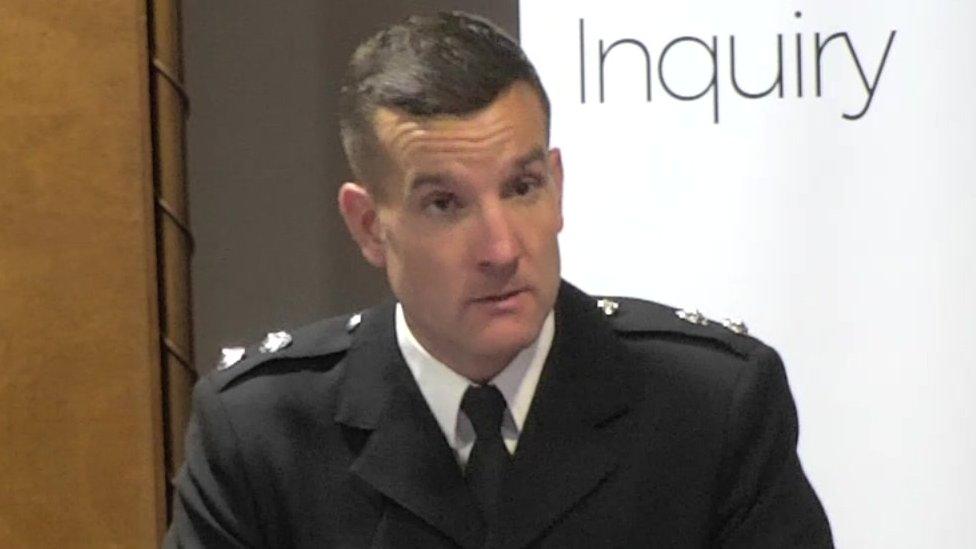
- Published27 June 2018

- Published25 June 2018
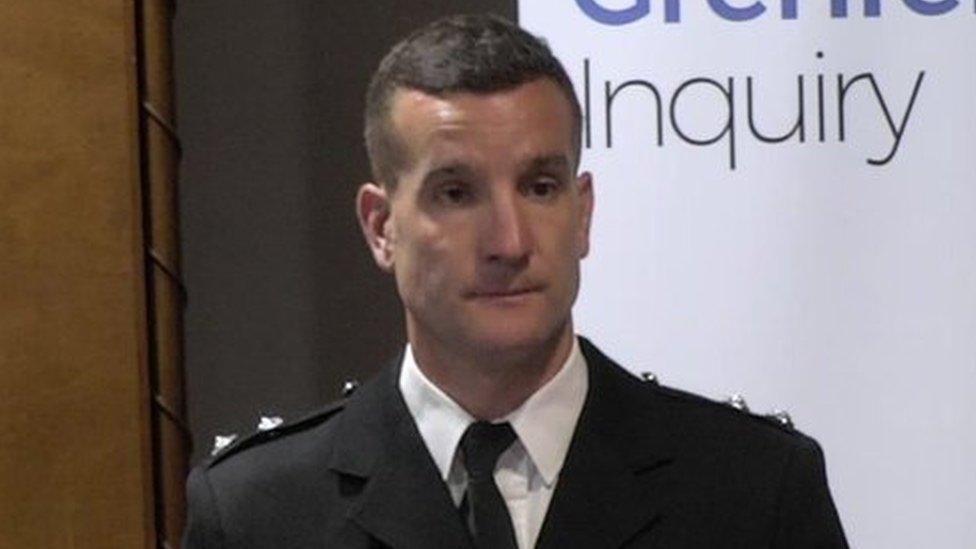
- Published26 June 2018

- Published18 June 2018
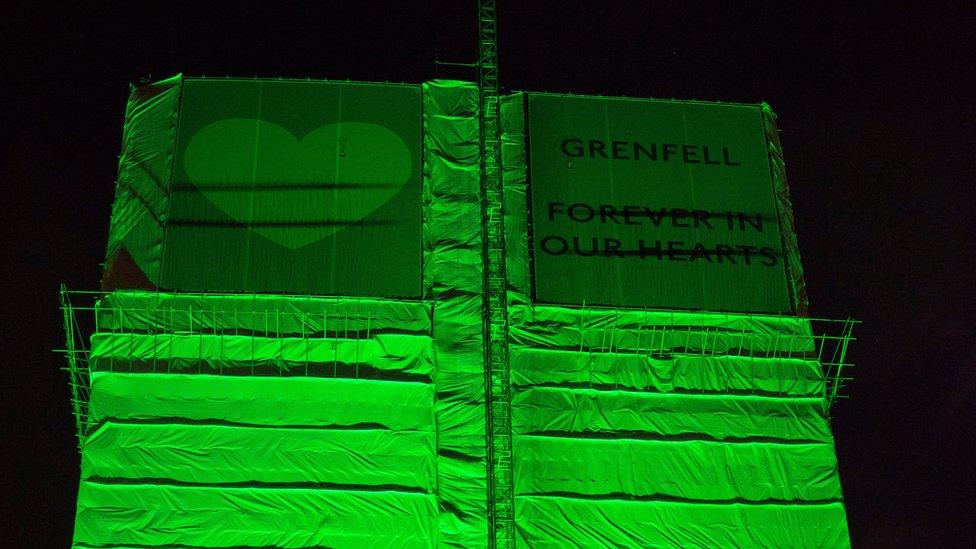
- Published29 October 2019
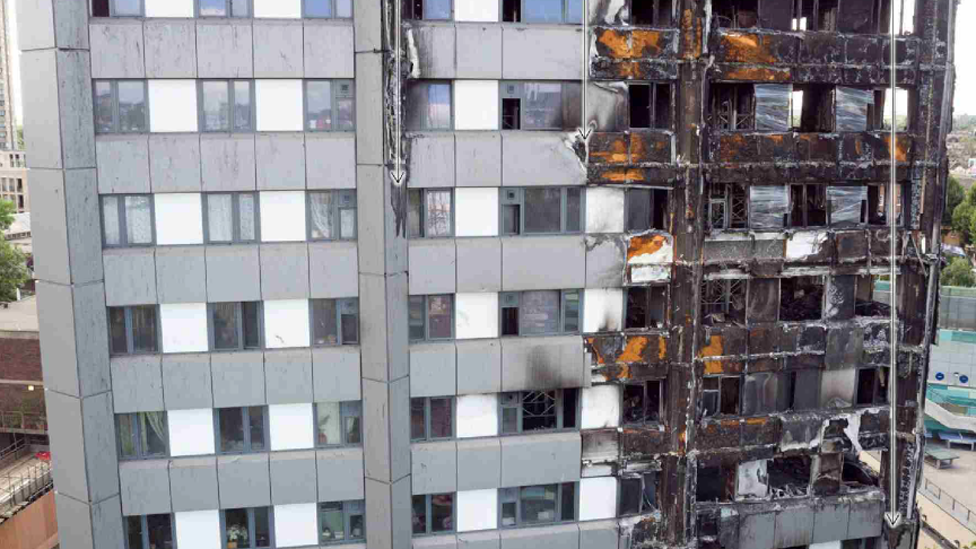
- Published14 June 2018
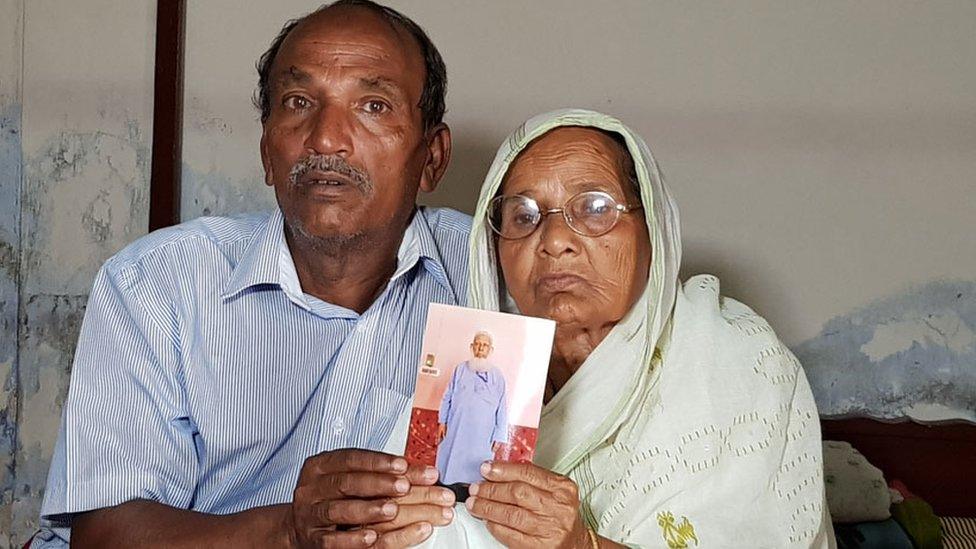
- Published7 June 2018
